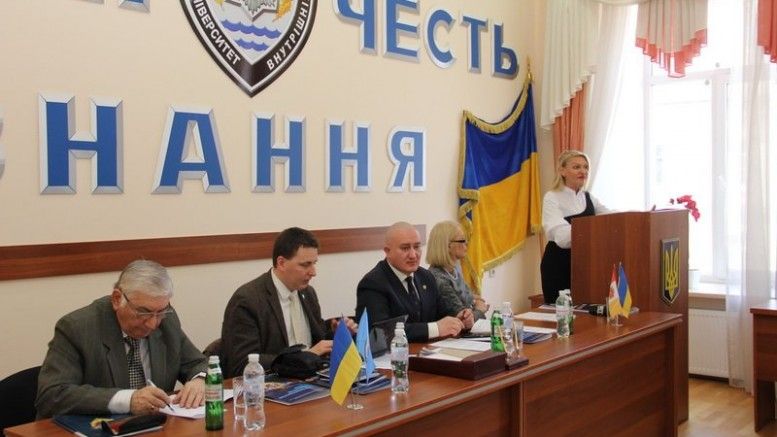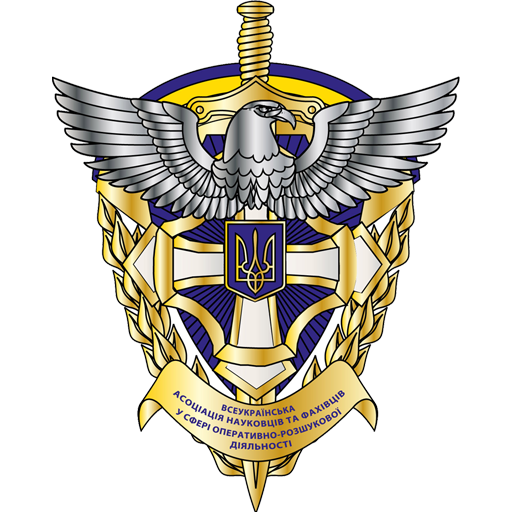
The role and place of law enforcement agencies in building a democratic state based on the rule of law
On March 25, 2016, the Odessa State University of Internal Affairs hosted the VIII International Scientific and Practical Conference “The Role and Place of Law Enforcement Agencies in Building a Democratic Rule of Law State”. The conference organizers included members of the All-Ukrainian Association of Scientists and Specialists in the Field of Operational and Investigative Activities.
The organizing committee of the conference included: Deputy Chairman of the Association, Candidate of Law, Associate Professor Albul S.V., members of the Association – Candidate of Law, Associate Professor Andrusenko S.V., Candidate of Law, Associate Professor Kholostenko A.V., Candidate of Law, Associate Professor Shelekhov A.O.
The plenary session began with a tribute to the memory of Doctor of Law, Professor, Honored Worker of Science and Technology of Ukraine, Corresponding Member of the National Academy of Legal Sciences of Ukraine, retired police colonel Vasyl Dmytrovych Bernaz.
At the beginning of the event, the First Vice-Rector of the Odessa State University of Internal Affairs, Deputy Chairman of the Association, Candidate of Law, Associate Professor Serhiy Albul addressed the guests and participants of the conference with an introductory speech and greetings.

He emphasized the importance of the participation of law enforcement agencies in the development of a democratic legal state, which is, as never before, relevant and important for the entire society, but requires certain changes, unity and legal protection. “Being in the process of democratic state-building, Ukraine, from the very beginning of its emergence as an independent state, resolutely abandoned the principles, methods and means of the totalitarian past it experienced in the 20th century, choosing the path of building statehood on the principles of humanism, democracy, protection of the rights and freedoms of citizens. Such a strategy and understanding of the goals, principles and tasks of law enforcement agencies also determine the perspective positions for the further development of the Ukrainian police,” the first vice-rector noted.
The floor was then given to Doctor of Philosophy Petr Pojman, a member of the committee of the Czech Criminological Society, responsible for PSSI projects in Ukraine.

The foreign guest spoke about the problems of verifying the reliability of state officials in the Czech Republic and possible anti-corruption tools for Ukraine.
The work of the conference was organized within the framework of the following sections:
- Socio-legal and economic problems of state development: priorities and prospects.
- Current problems of administrative law and administrative process.
- Current problems of administrative activities of the National Police of Ukraine.
- Current problems of professional training of law enforcement officers.
- Current problems of criminal proceedings and operational-search activities. Current problems of criminal law, criminal-executive law and criminology.
The head of section No. 5 “Current problems of criminal proceedings and operational-search activities” was the member of the Association, Doctor of Law, Professor Sahakyan M.B.

During the conference, members of the Association presented scientific reports on the following topics:
— Albul S.V. “Categories of “intelligence information” and “criminal intelligence information” in the context of implementing the intelligence function of the operational and investigative activities of the National Police of Ukraine”;
— Vodko M.P. “Certain issues of forming a policy of combating criminal offenses in Ukraine (operational and investigative aspect)”;
— Gribov M.L. “Organization of the activities of operational units: the essence and practical significance of the scientific category”;
— Zayets O.M. “Features of organizing a pre-trial investigation by an investigator when investigating criminal offenses in the insurance sector”;
— Lyubchyk V.B. “Signs of the general criminal and economic orientation of organized criminal groups”;
— Mukoida R.V. “Features of the tactics of documenting crimes committed using fictitious enterprises”;
— Nozdrin D.O. “On the issue of the prospects for using the polygraph in the system of the Ministry of Internal Affairs of Ukraine”;
— Polyakov E.V. “Beginning of pre-trial investigation: individual problems”;
— Tarasenko V.E. “On the process of forming individual theories in forensics and operational-search activities”;
— Tarasenko R.V. “Establishing the evidentiary value of hidden audio and video recordings as an integral element of the effective fight against corruption crimes”;
— Kholostenko A.V. “Prospects for using service-detective dogs in the investigation of crimes related to illicit gain.”

The conference was attended by scientists from Vinnytsia National Agrarian University, Dnipropetrovsk State University of Internal Affairs, State Research Institute of the Ministry of Internal Affairs of Ukraine, Donetsk Law Institute of the Ministry of Internal Affairs of Ukraine, State Institution "South Ukrainian National Pedagogical University named after K.D. Ushinsky", Zaporizhia National University; Kyiv National University named after Taras Shevchenko, Kyiv National University of Trade and Economics, Kyiv National University of Culture and Arts, Lviv State University of Internal Affairs, National Academy of Internal Affairs, Odessa State University of Internal Affairs, Odessa National Academy of Communications named after A.S. Popov, Odessa National Maritime University, University of the State Fiscal Service of Ukraine, Kharkiv National University of Internal Affairs and employees of practical units of law enforcement agencies of Ukraine.

Foreign guests presented educational institutions and law enforcement agencies from the Czech Republic, Azerbaijan, Moldova, and Bulgaria.

